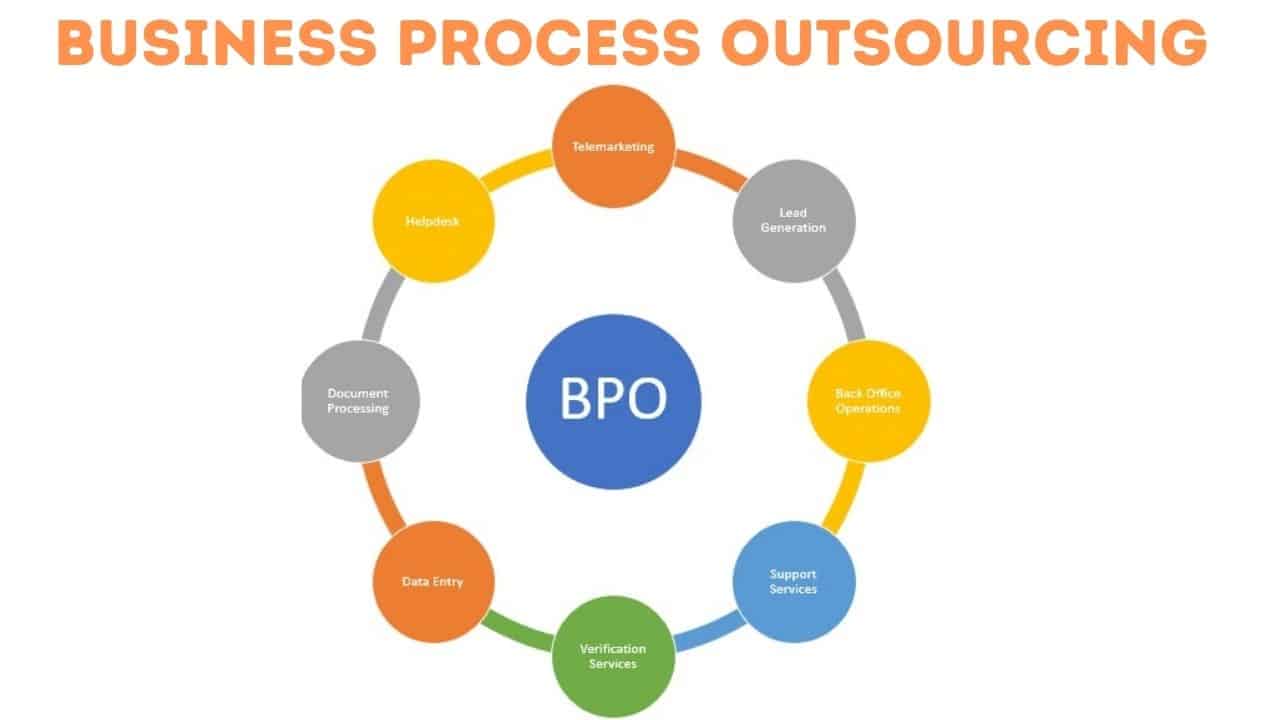It can be stressful and confusing to talk about yourself in an interview when you don’t know how to answer interview questions. Perhaps you’re wondering, “What do they want to know about me?” Should I give you a biopic synopsis of my previous job? It’s difficult to talk about losing your job under any circumstances, and being asked why you were fired in an interview is one of the most difficult interview questions to answer. A simple way to accomplish this is to incorporate a few simple phrases into your next job interview. In this article, we’ve gathered some tips on what to say when called in for an interview. Whether you were fired from your previous job or have no prior experience, you will need to know how to answer interview questions.
What to Say in an Interview If You Don’t Have Any Experience
Interviewers can ask potential employees hundreds of questions. But there’s a question you might be answering wrongly, and it could cost you the job. So, what exactly is this one question?
Each person and every job requires a unique approach. But one thing remains consistent about this question. Do you have previous experience of doing a particular responsibility that the employer might be looking for in someone? Employers want to know that you have the necessary experience and skills to perform the job’s essential functions during the interview. You can usually tell where their biggest “hurts” are by the questions they ask during the interview. If they require someone with specialized knowledge or experience in a particular field, they will ask you about it during the interview. So, what’s the best way to respond to this crucial question?
#1. I’m Quite Familiar With the Company’s Operations.
If you let a potential employer know that you are familiar with the company’s operations, it shows that you are not just wasting their time but also that you want to work with the company. You should do some research on the company prior to your interview. To learn more about the company’s products and services, visit their website. You can also look for the most recent transactions and relevant business news.
It’s important to show the interviewer that you’re up to date on the most recent acquisition or product development by your company or its competitors! Describe how your skills and experience are an ideal match for the employer during the interview.
#2. I Am Adaptable
Workplaces are constantly changing. Prospective employers are looking for candidates who are flexible, adaptive, and open to new experiences. Employees must be able to multitask in today’s fast-paced business world.
Declaring that you are adaptable shows an employer that you are willing to go above and beyond to do the job. In a pinch, this may imply working longer hours or taking on additional job responsibilities. Demonstrate to your potential employer that you are capable of handling any conflict that may occur.
#3. I Am Enthusiastic and Have a Good Attitude.
Employers are looking for candidates who are upbeat and have a “can-do” attitude. Workers’ morale is a result of the attitudes of their colleagues. So, even without any experience, you can allow your optimistic side to shine through during the interview session.
Always speak positively about previous employers. Negative and sarcastic remarks about previous employers and coworkers will make you appear petty. Employers are likely to believe that if you disparage your previous employer, you will do the same to them.
#4. I Have a Lot of Experience.
By demonstrating your previous experience during the interview, highlight any previous job responsibilities that are directly relevant to your new position. If you are applying for a management position, state that you are accountable for the supervision, training, and development of other employees at all times. Give specific examples of how you increased productivity and discuss your motivational techniques. If you’ve been to any training sessions or seminars, also include them.
#5. I’m a Team Player
During your school years, did your teacher ask you if you were good at working with others? So, it’s the same in the job market. Cooperation and good interpersonal relations are highly valued by employers. Mentioning that you are a team player shows your prospective employer that you thrive in group settings.
Employers are on the lookout for employees who can perform well under minimal supervision and who can get along well with coworkers.
#6. I Want to Become Competent in My Field.
Employers value applicants who are expanding their knowledge base in order to become the best employees possible. Employers will view you as an asset rather than a liability if you state that you want to become an expert. You are a resource from which other employees can learn.
This is also a clever way of demonstrating your commitment to excellence. You want to be the best at whatever you do. This will demonstrate to employers that you are not a “glide” employee but are in it for the long haul.
#7. I Have a Strong Internal Drive
A happy worker is a productive worker. Discuss how your high level of motivation has enabled you to accomplish so much. If you are a meticulous worker, you may want to discuss your organizational skills and attention to detail. Companies are constantly on the lookout for dependable employees on whom they can rely.
What to Bring to an Interview to Impress?
Showing up on time for the interview demonstrates that you value the interviewer’s time and have prepared thoroughly. Take along a copy of your resume: You should bring extra copies of your resume just in case the interviewer or anyone else involved in the discussion doesn’t get a chance to look it through. You can use it as a record of your accomplishments in the workplace and as proof of your proficiency in relevant areas.
What Should You Not Say in an Interview
- Anything bad you can say about a former employer or job.
- It says so on my CV.
- Unprofessional language.
- I don’t have any questions.
- I don’t know.
- Talking about benefits, time off, and pay.
- Inquiring about what the company does.
- Too many canned answers or old sayings.
What to Say in an Interview When Asked About Yourself
“Please tell me about yourself.” is an interview question interviewers often ask, and it can be tricky to answer. Even so, many job seekers don’t take the question seriously, thinking it’s just a way to start a conversation meant to make them feel more comfortable.
However, they should think about their response carefully because “tell me about yourself” is more than a jokey opener for most interviewers. When hiring managers ask this open-ended question, they expect candidates to provide insight into their goals and priorities, giving them a better sense of who each potential employee truly is.
A good rule of thumb is to make sure you can succinctly and clearly explain how and why you’re qualified for this particular job in your response to the question, “Tell me about yourself.” Consider the job description in the job advertisement and the company’s website before you begin putting together your package. That way, you’ll have a better idea of what the hiring manager is looking for in terms of skills and experience.
Afterward, craft a one- or two-paragraph script outlining your most salient qualifications for the position. Then, explain why you’re applying for the job, emphasizing professional life motivations such as a desire to gain experience and take on additional responsibilities. Finish with a brief statement explaining why working for this particular company interests you.
A Good Example Response to the Interview Question “Tell Me About Yourself”
An excellent response to “tell me about yourself” for a job seeker applying for a senior administrative assistant position with a clean-energy company is as follows:
“I’ve been an admin for three years. My current position in the finance department of a midsize company involves scheduling, meeting, and travel planning for five directors and twenty employees. I also assist in the preparation of correspondence, presentations, and reports.
As a member of a team, I’m known for my attention to detail and organization. I never miss deadlines, am an excellent communicator, and can handle multiple tasks at once. My boss always compliments my professionalism and enthusiasm for the job in my performance reviews.
“With this experience under my belt, I’m looking for a chance to advance in my career.” I’d like to do so in an organization such as yours that works to improve the environment, which is something I’m very interested in. “
Finally, be succinct. Your response should not take a lot of time. If the hiring manager asks why you believe you are a strong candidate, you do not have to go into detail. Just a few key details that will pique their interest in learning more about you will get the interview off to a strong start.
What to Avoid in Tell Me About Yourself?
- Don’t tell them your entire professional or personal past. It may appear logical to begin at the beginning and guide the interviewer through your professional background
- Don’t complain about your job search or your boss.
- Don’t get too personal or bring up potentially dangerous themes.
What to Say in an Interview If You Were Fired From a Previous Job
How to Give the Best Response in an interview if you were fired from a previous job
#1. Demonstrate Your Growth as a Result of Your Previous Experience.
If your departure was amicable due to the job not being a good fit, a lack of communication about job responsibilities, or a failure to recognize warning signs during the interview process, it’s best to discuss it from a “sadder but wiser” perspective.
When the departure was not particularly friendly, “sadder but wiser” is also a good approach. When possible, try to use two positive statements in your response. Don’t dwell on the event. Respond to the question briefly and positively, then move on.
#2. Rehearse Your Response
The more at ease you are discussing your termination, the more at ease the hiring manager will be with your response. Make sure you are ready to explain the situation and practice until you are confident enough to do so. Remember that some of history’s best and brightest workers have been let go.
#3. Keep It Short.
You want to be direct and honest in your response, but there’s no need to go into detail. This is not the time to reveal too much information. Say your piece, then get to the good stuff: your qualifications and how you plan to use them to solve the company’s problems.
#4. Highlight Your Positive Qualities
Keep the conversation moving forward in a positive direction. Turn your attention to your skills and abilities, and connect them to the job requirements. This way, you can demonstrate to the hiring manager why you are a good fit for the position.
#5. Maintain a Positive Attitude
Maintain a positive attitude as you prepare for your post-termination interview. Be proud of your professional and personal accomplishments. Don’t beat yourself up or adopt the mindset that no one will hire you when you go for a job interview because you were fired.
Don’t forget that almost everyone you talk to has either been fired at least once in his/her career or knows at least a few good people who were terminated for various reasons. There are literally millions of people who have gone on to have successful careers despite being fired from their jobs.
The most important thing to remember is that, no matter how bad the situation is, don’t say anything openly disparaging about the employer. There should be no trash talk during a job interview or networking event. Consider your dismissal a learning experience, and take pride in the fact that you persevered in a difficult situation and did your best for as long as you possibly could.
What You Shouldn’t Say
#1. Avoid Using the Word “Fired” in a Job Interview
Keep in mind that an interview is, at least in part, a sales pitch. When marketing yourself, avoid terms that have a negative connotation for many people. Instead of using words like “fired,” in a job interview, use phrases like “let go.”
#2. Avoid Dwelling on the Negative
Even if your former boss or employer did deserve it, now is not the time to bash them. Maintain a positive attitude and keep your negative thoughts to yourself. Do not make the hiring manager wonder if you will behave in this manner toward the new employer if you are hired.
#3. You Don’t Need to Lie
For example, resist the urge to portray a firing as a layoff. You’re going to get caught, and if you do, you’ll miss out on the opportunity entirely. Be truthful, but avoid over-explaining.
Conclusion
Your approach is important when answering an interview question with no experience. So make it a point to emphasize that you’re confident in your ability to do whatever they’re asking you to do. Being confident in your abilities and talents makes a potential employer feel better and is a far better alternative than simply telling them.
What to Say in an Interview FAQs
What to say at the beginning of an interview?
Begin the interview with a friendly greeting, such as “How are you today?” or “It’s a pleasure to meet you!” “Thank you for taking the time to meet with me today,” say you to the interviewer. Get in touch with someone at the company: “I was overjoyed to hear that this position had become available!”
How do I say I really want this job?
“I’m really looking forward to working with this company “It would be an honor to work with such an outstanding group as you.” “I’m very interested in the job, but do you have any reservations about my ability to perform?”
What is your weakness best answer?
Select a skill that isn’t required for the job you’re applying for and emphasize how you’re addressing your weakness practically. Impatience, multitasking, self-criticism, and procrastination are all examples of weaknesses.
Related Articles
- Cash Balance Pension Plan: Pros & Cons and Withdrawals
- INTERVIEW CLOTHES FOR WOMEN: How To Dress For An Interview
- Content Marketing Manager: Job Description, Interview Questions & Salary (Updated!)
- TECHNICAL PROJECT MANAGER: Salary, Job Description, Skills (Updated)
- EXIT INTERVIEW: Tips for Conducting an Exit Interview (+Example questions)






